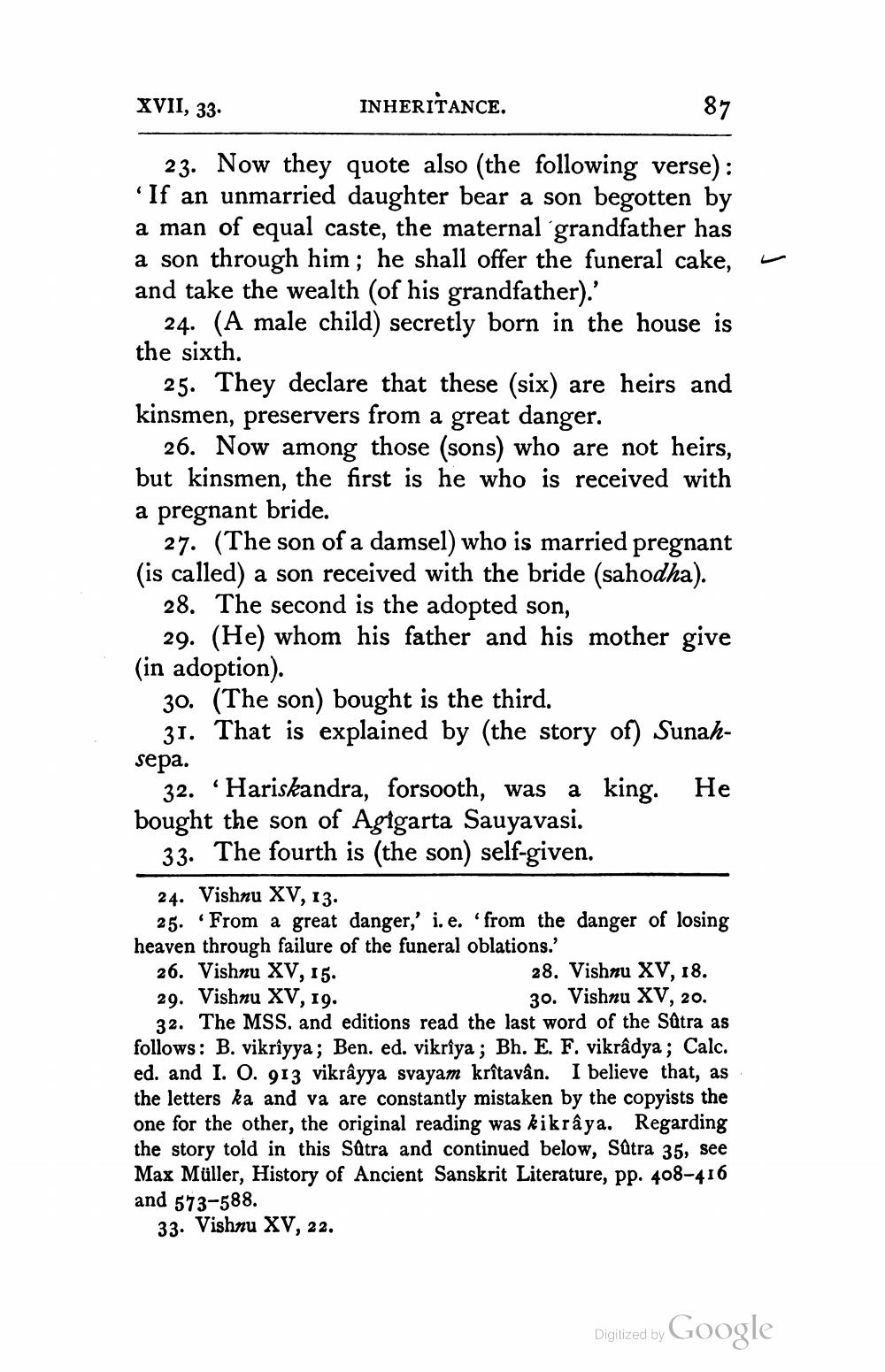________________
XVII, 33.
INHERITANCE.
87
-
23. Now they quote also (the following verse): *If an unmarried daughter bear a son begotten by a man of equal caste, the maternal grandfather has a son through him; he shall offer the funeral cake, and take the wealth (of his grandfather).'
24. (A male child) secretly born in the house is the sixth.
25. They declare that these (six) are heirs and kinsmen, preservers from a great danger.
26. Now among those (sons) who are not heirs, but kinsmen, the first is he who is received with a pregnant bride.
27. (The son of a damsel) who is married pregnant (is called) a son received with the bride (sahodha).
28. The second is the adopted son,
29. (He) whom his father and his mother give (in adoption).
30. (The son) bought is the third.
31. That is explained by (the story of) Sunahsepa.
32. “Hariskandra, forsooth, was a king. He bought the son of Agigarta Sauyavasi.
33. The fourth is (the son) self-given. 24. Vishnu XV, 13.
25. From a great danger,' i. e. 'from the danger of losing heaven through failure of the funeral oblations.' 26. Vishnu XV, 15.
28. Vishnu XV, 18. 29. Vishnu XV, 19.
30. Vishnu XV, 20. 32. The MSS. and editions read the last word of the Sätra as follows: B. vikrîyya; Ben. ed. vikriya; Bh. E. F. vikrâdya; Calc. ed. and I. O. 913 vikrâyya svayam krîtavân. I believe that, as the letters ka and va are constantly mistaken by the copyists the one for the other, the original reading was kikrâ ya. Regarding the story told in this Satra and continued below, Sutra 35, see Max Müller, History of Ancient Sanskrit Literature, pp. 408-416 and 573-588.
33. Vishnu XV, 22.
Digitized by Google




